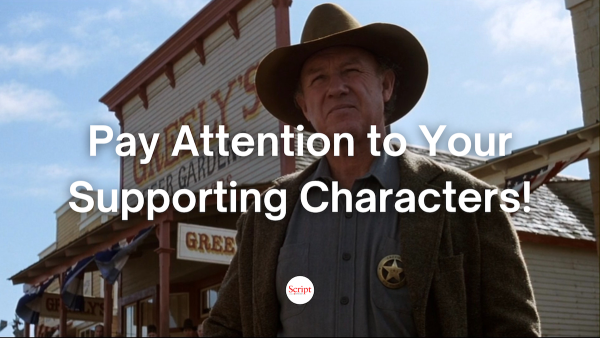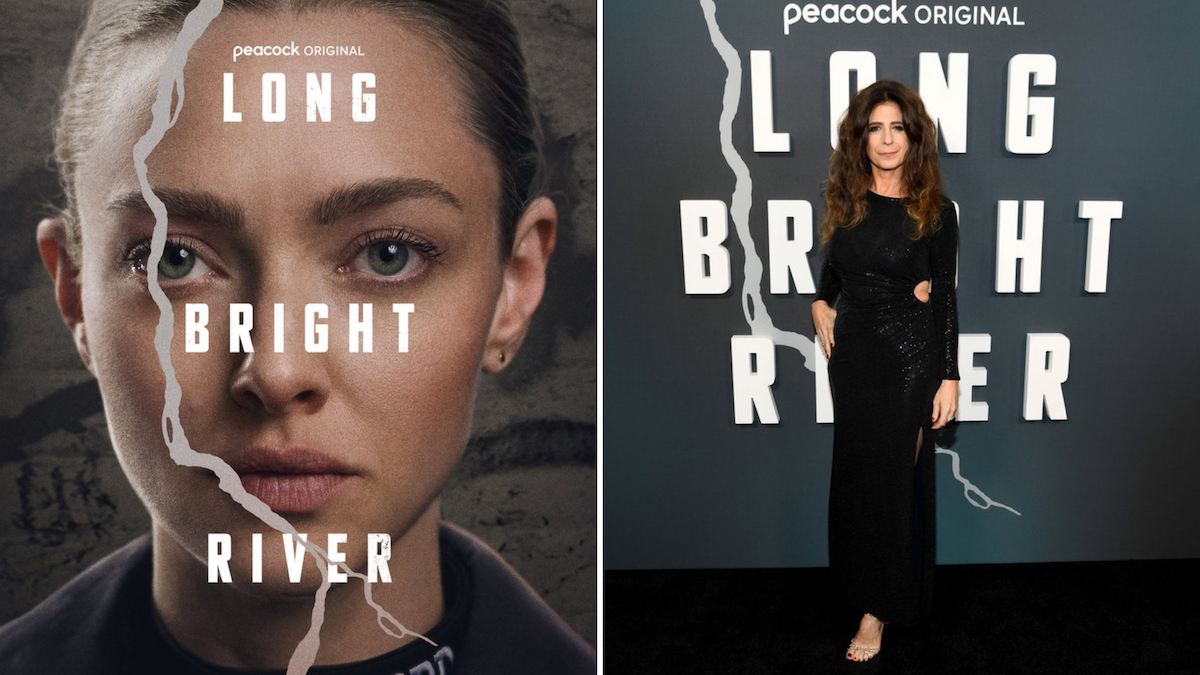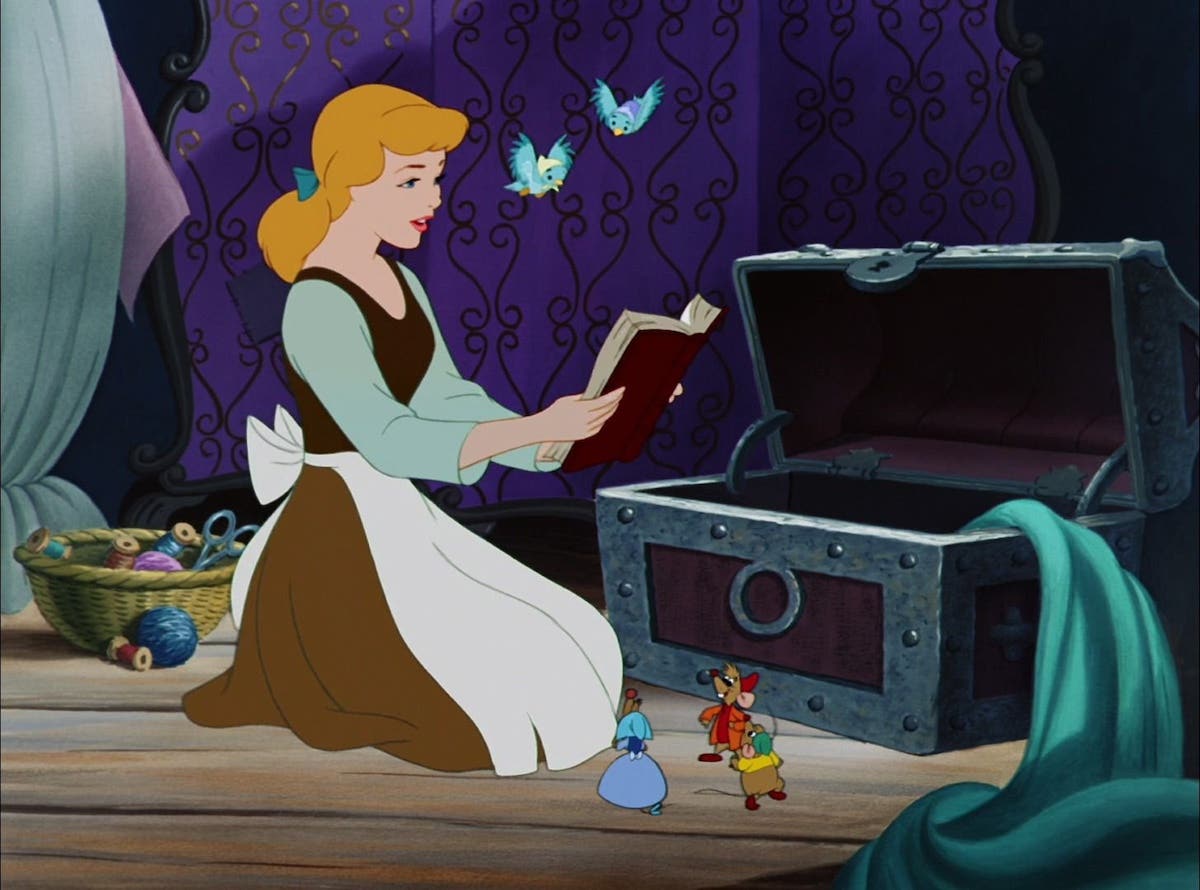Specs & The City: Opening Scenes of Movies & Children of Men
Brad Johnson discusses the importance of opening scenes of movies, and how to write an impactful one for your script, using ‘Children of Men’ as an example.
Brad Johnson discusses the importance of opening scenes of movies, and how to write an impactful one for your script, using Children of Men as an example.
We all know how important openings scenes of movies are, and that means those first few pages of your script are crucial to its overall success. How effective you are at setting up your story will determine whether your reader keeps going past page 3 or your script gets tossed in the trash. And a big part of what makes these first few moments memorable is how effectively you establish the world of your story. What kind of journey is your audience about to go on? What are the rules of your world? What do we, as the audience, need to know?
Think about it thoroughly, and decide carefully, because the world you build in these pages – the rules you establish – are how your audience is going to judge your story. You’re effectively creating a contract between you and the reader, and it’s a contract you need to be prepared to honor.
And so, it’s vital that you know how to construct a satisfying opening scene. One that does all of the above while still grabbing your reader by the throat right from the start. Don’t let a botched opening scene be the reason a reader never makes it to all of the other amazing things in your script.
For my money, one of the best opening scenes to study for world building and setting story expectations is Children of Men, written by Alfonso Cuaron and Timothy J. Sexton (with additional WGA credits for David Arata, Mark Fergus, and Hawk Ostby). For those that haven’t seen the film, it’s set in the 2027, and the world’s population has become infertile. No more children are being born, and haven’t for some time, and as a result, most countries in the world have collapsed into chaos. Against this backdrop, Theo is thrown into a world of politics and warfare as he attempts to protect what may be mankind’s last hope for survival. It’s a complex world with a lot to set up, so let’s take a look at exactly what we learn during these first couple of minutes:
- The first words uttered over a black screen are “Day 1000 of the siege of Seattle. The world as we know it has descended into chaos and violence. Things are bad and have been for a while now."
- Next we hear a television news anchor reporting on the death of “Baby Diego,” the youngest person on the planet. This is our first hint that no more children are being born in this world. The amount of fervor society in general is feeling towards the lack of new children is also reflected in the news report where Diego is described as being a celebrity simply for being the last person to be born.
- A good script will bury exposition in emotions and on screen actions, and that’s what Children of Men does here. While we’re learning the specifics of Diego’s death, we’re watching the crowd of people openly weeping while watching the report on a television at a coffee shop. These people are absorbed in the news, and are devastated by what they’re hearing. More evidence of how important this issue of infertility is to the planet as a whole.
- Then we’re introduced to our protagonist, Theo. We get an immediate sense of his detachment from the world around him – the way he is different from everyone else - by the way he pushes through the mourning crowd to order his coffee; barely glancing up at the newscast before heading out to the street.
- Once we’re out on the street, we get some more glimpses into the world being established. There’s enough technology we don’t recognize to let us know we’re in the future, but enough is still the same that we know we aren’t TOO FAR into the future (indeed, the year is 2027). The dirt and the grime on everything, including the futuristic technology, shows us a world in decay.
- Walking down the street a bit, Theo stops to pour some booze into his coffee. This is more insight into the state of detachment and despair Theo is in as the story starts.
- And then the explosion happens. In the coffee shop Theo just walked out of. This is the world we’re in. Sudden, random acts of violence that punctuate even the most mundane of activities. A world where innocent people are no longer safe (the protection of innocents being a prevalent theme throughout the film).
- Finally, the opening scene ends with a woman stumbling out of the destroyed coffee shop, covered in blood and holding her own severed arm. This is telling us what tone we can expect from the movie. It’s going to be dark and gritty and full of violence, and that violence isn’t going to be sugarcoated.
That’s a huge amount of information to cram in 2:27. You’ve got exposition, character introductions, the first exploration of certain themes, and world building, all crammed in there. And it all works beautifully.
Go back and reread your opening scene with these things in mind. Are you establishing everything you need to for your audience to understand what comes next? Are the rules of your world adequately explained? Is the contract you’re entering into with the audience, promising the kind of story you’re delivering? If not, then it’s time to step back and reevaluate exactly what’s going on during these crucial first pages.
Have better examples of opening scenes that deliver? How about opening scenes that totally botch the job of establishing their movie? Share them down in the comments; I’d love to hear what you have to say.
- More articles by Brad Johnson
- Specs & The City: Openings and 'Goodfellas'
- Top Ten Tips to Tantalize an Executive to Love Your Screenplay
Before you submit your script, make sure it's polished and ready with the help of our ScriptXpert Coverage and Development Notes!
ORDER NOW!
Our ScriptXpert Critique Service is back! Our team consists of more than experienced working screenwriters, we also have story analysts, development execs, directors, producers, and even filmmakers. Rest assured, we do not hire interns or college students. We only use readers who understand the industry on a professional level. Get Coverage or Coverage with Development Notes to see how your screenplay stacks up to what studios are looking for. Rush service available!
Brad Johnson is a screenwriter and producer who has placed in multiple competitions including Final Draft Big Break and the Walt Disney Television Writing Program. He has served as a judge for the Nashville Film Festival and the NYC Midnight Short Screenplay Challenge, and worked as a script consultant through his website, ReadWatchWrite.com. You can follow Brad on Twitter @RWWFilm.




![The Era of the Multi-Hyphenate: An Interview With Writer and Filmmaker Mario O. Moreno [SERIES]](https://scriptmag.com/uploads/MjEzMTEyNzA4NjQ2NTc3NjE1/the-era-of-the-multi-hyphenate-series-script-hero.png?format=auto&optimize=high&width=1440)
